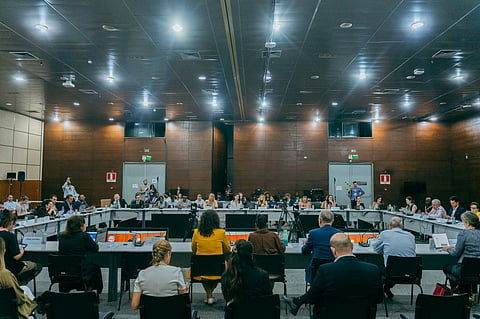

Negotiators at the COP30 climate summit in Belém, Brazil, reached a tentative agreement early Saturday after the talks overran by more than a day.
The two-week conference, originally scheduled to close on Friday, was extended amid deep divisions over fossil fuels and financial support for poorer countries most affected by climate change.
A final draft agreement omitted any direct reference to phasing out or transitioning away from coal, oil, and gas despite strong pushes from the European Union, the United Kingdom, and dozens of other countries.
Instead, the Brazilian presidency announced it would issue a separate, non-binding “roadmap” text addressing fossil fuels and forest protection.
COP30 President André Corrêa do Lago described the move as necessary due to lack of global consensus, adding that proceeding under the presidency would still yield results.
EU climate commissioner Wopke Hoekstra called the overall package acceptable, saying it “is going in the right direction.”
The accord formally commits to tripling climate finance available to developing countries by 2035 to help them adapt to rising temperatures, extreme weather, and other impacts.
The text also includes measures to accelerate climate action and review trade barriers related to green technologies.
Sierra Leone’s environment minister Jiwoh Abdulai welcomed the outcome, noting clearer recognition of historical responsibility by wealthier nations despite the deal falling short of Africa’s full demands.
The agreement requires unanimous approval, and sources cautioned that last-minute objections could still derail adoption.
A closing plenary session, repeatedly delayed, remained pending final confirmation.